The World University Rankings 2016-2017 recently released by Times Higher Education (THE) has shown a notable rise of Asian universities taking the top spots, and a huge push towards intra-regional higher education partnerships. Given the active role of business schools, how can business schools keep abreast of the new trend, and enhance their collaboration with enterprises?
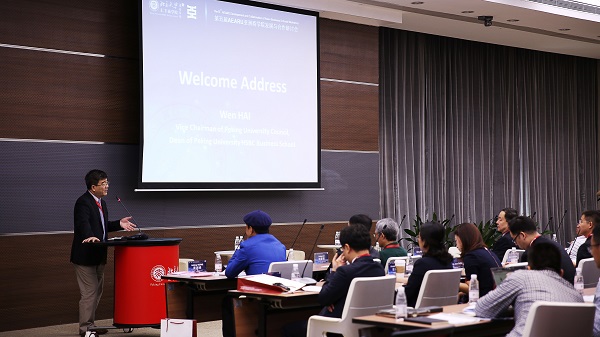
The opening ceremony of the 5th AEARU Development and Collaboration of Asian Business School Workshop
With the theme of “Business Education: Meeting the Challenge of Innovation,” the 5th AEARU Development and Collaboration of Asian Business School Workshop was held at the Peking University HSBC Business School (PHBS), October 22 to 23. The Association of East Asian Research Universities (AEARU), founded in 1996, is a regional organization aiming to enhance academic exchange between leading universities and contribute to economic and social progress in the region.
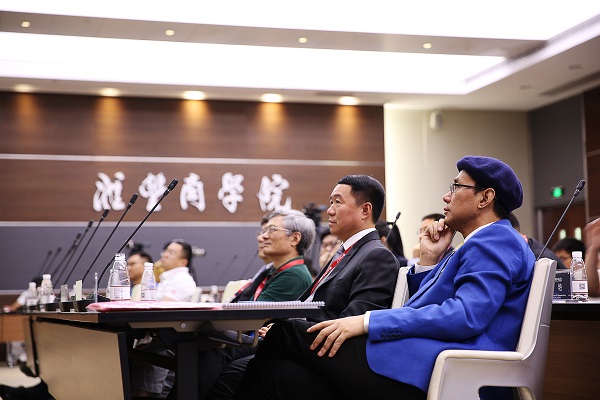
Scholars and entrepreneurs listen to the keynote speeches
This year’s workshop featured keynote speeches and five plenary panels. Business schools’ deans and leading entrepreneurs converged to engage in open discussions on trends of business school education to meet the market demand of innovation and entrepreneurship. It also provided students from AEARU member universities a venue for presenting their academic achievements.
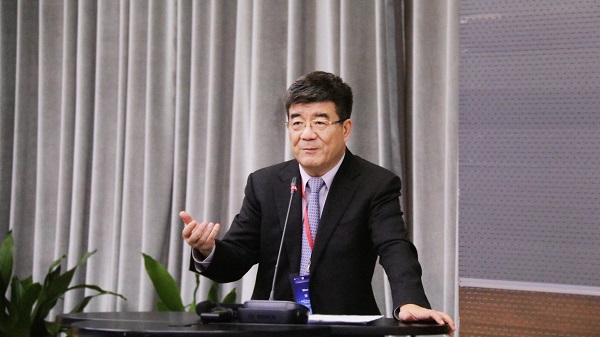
PHBS Dean Hai Wen delivers opening remarks
The event started with opening remarks delivered by PHBS Dean Hai Wen who emphasized the vital role of business education in nurturing future business leaders for this ever-changing world and maintained that PHBS should embrace the trend to enhance higher education partnerships and school-enterprise cooperation.
In the plenary sessions, deans from leading business schools exchanged views with their counterparts. They included Hu Qing, associate dean of Zicklin School of Business at Baruch College, The City University of New York; Liu Liming, dean of Faculty of Business of Lingnan University; Young Joon Park, assistant dean of Peking University HSBC Business School; and Xu Yan, associate dean of HKUST Business School, among others. Their discussions focused on various topics, including innovation and entrepreneurship, school-enterprise cooperation, and business education in the digital age.
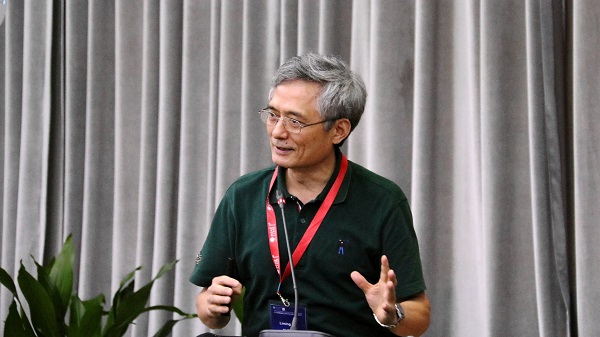
Professor Liu Liming shares his insights about school-enterprise collaboration
Professor Hu held that business education should benefit from innovative technologies, rather than be endangered by it; educators need to tap the potential of self-selected entrepreneurs and make them real business leaders. Professor Park and Professor Xu further focused on how business education should evolve and thrive in the digital age. They both maintain that though online courses have gathered momentum, classroom education is still vital in that it enhances effective interactions between professors and students. While, Professor Liu emphasized the need to establish the effective school-enterprise collaboration network since higher education institutions sometimes lag behind leading enterprises in terms of latest research achievements, especially in the field of online business.
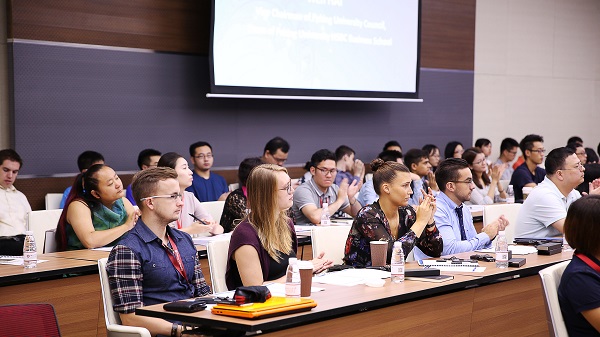
Students from from AEARU member universities wait to present their academic achievements
Entrepreneurs and policymakers also joined the discussions. Cui Hang, Director and Executive Vice President of Shenzhen Ever-rising Industry Group; Christina Zhang, director of corporate strategy of DJI; Zhang Gengyun, vice president of BGI Agriculture Group and chief scientist; and Zhang Xiangrong, director of Invest Shenzhen Guangming District, commented on how to integrate innovation into business, enhance school-enterprise cooperation, and prepare outstanding business leaders.
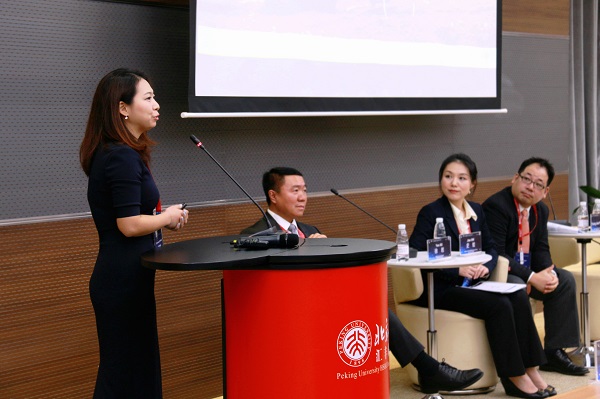
Christina Zhang gives a keynote speech
“Regardless of nationalities, entrepreneurs are able to get substantial government funds to fuel their startups in Shenzhen,” commented Zhang Xiangrong, referring to a more favorable government policy for entrepreneurship. In addition, Zhang Gengyun held that it would be a win-win situation for startups and young talent if better school-enterprise ties can be forged. “As a leading company in civilian-drone industry, DJI provides a good platform for engineers and business leaders to work together and make a difference, “remarked Christina Zhang.
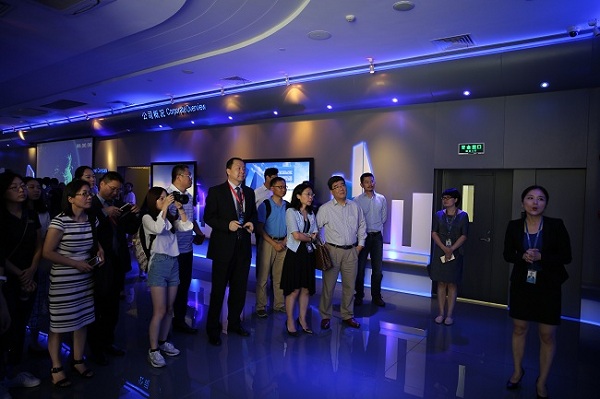 Participants visit Tencent on the second day
Participants visit Tencent on the second day
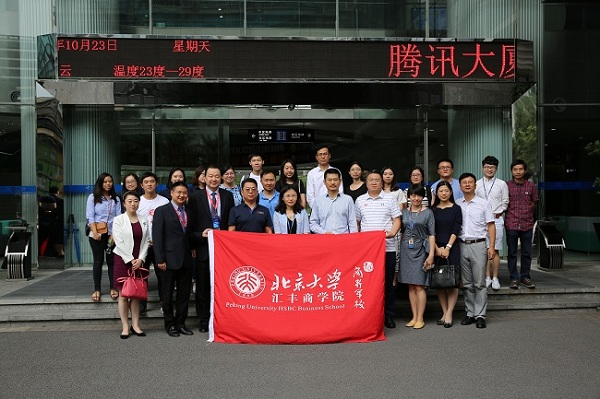
A group photo taken in front of the Tencent building
On the second day of the conference, participants visited Tencent. Based in Shenzhen, China’s most innovative and entrepreneurial city, Tencent has become one of the world’s largest internet companies and has maintained steady growth through user-oriented strategies and R&D investment. The visit offered scholars the chance to gain a better understanding about the company and explore further school-enterprise collaboration.
As one of China’s most internationalized business schools, PHBS places great emphasis on higher education cooperation and dialogue with leading universities as well as enterprises. In fall 2014, the school held the Global Dean’s Forum, which welcomed deans and other representatives from over 40 business schools worldwide to discuss the current and future state of business education. Dedicated to facilitating the integration of economic theories and practices, PHBS held the 2016 China Economist Society conference this past June and has successfully provided a series of “PHBS Finance Frontier” lectures, where faculty, students and practitioners can exchange both academic findings and practical experience. In addition, PHBS regularly provides students lectures by entrepreneurs and business leaders, as well as scheduling company visits and exposing students to real business practice.
By Annie Jin
Edited by Priscilla Young






















